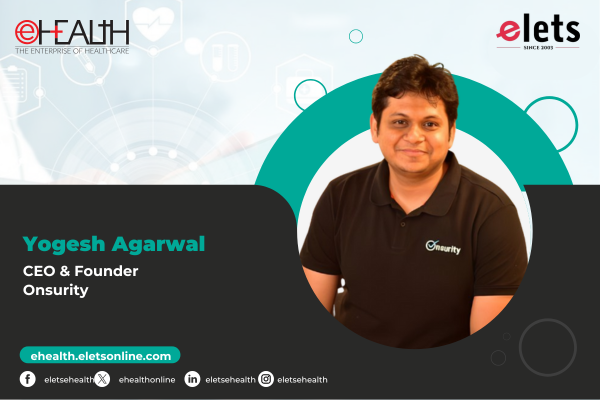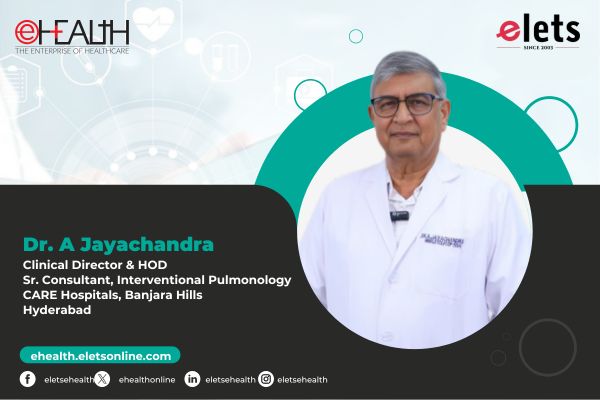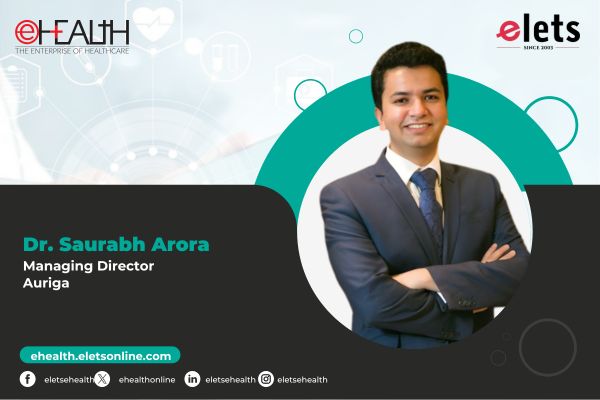
AI has become ubiquitous, and its applications across industries, particularly in healthcare, are rapidly evolving to transform healthcare delivery due to a shortage of healthcare professionals and quality services. A report on the National Strategy for Artificial Intelligence by the NITI Aayog showed that a shortage of qualified healthcare professionals and non-uniform accessibility to healthcare across the country prevails. India has only 64 doctors available per 100,000 people compared to the global average of 150.
This is where AI can truly play a significant role in augmenting access and availability of quality healthcare services. However, several significant challenges prevent its successful adoption. Limited and fragmented health data complicates AI model training, and resource constraints slow down AI implementation in healthcare settings. Fear of change and distrust in AI, especially concerning health decisions, further hinders acceptance and can be mitigated through transparency and involving stakeholders in AI solution development. Furthermore, the lack of qualified AI professionals is a fundamental hurdle, underscoring the need for training and education initiatives. A recent report by IIM-A and BCG (Boston Consulting Group) stated that Intiontion

Advancements in healthcare powered by AI Despite the challenges, in India, AI’s role in healthcare and diagnostics has surged, revolutionizing disease detection and patient care. According to NASSCOM (the National Association of Software and Service Companies), the integration of data and AI within the Indian healthcare sector holds the potential to contribute approximately $25 billion to India’s GDP by 2025.

NITI Aayog, a government-affiliated public policy think-tank, has been actively exploring the application of artificial intelligence (AI) in primary care, particularly for the early detection of diabetes complications, and is presently verifying the efficacy of AI as a screening tool in eye care, comparing its diagnostic accuracy with that of retina specialists. The integration of AI capabilities with portable screening devices like 3Nethra has the potential to expand the reach of eye screenings, facilitating early detection and improving access in remote regions across the country.

AI-driven tools can leverage these high-quality de-identified images to aid machine learning models in identifying biomarkers, thus enhancing treatment research outcomes and ensuring access to quality healthcare, regardless of location. In recent years, artificial intelligence has found application in various domains of diagnostics. Some of the prominent ones are as follows:

AI-Powered Imaging Analysis: One of the most significant advancements in the diagnostic sector is the use of AI for medical imaging. AI algorithms can rapidly and accurately analyze various medical images, such as X-rays, CT scans, and MRIs. These algorithms not only detect anomalies but can also assist in quantifying the extent of diseases. Leading healthcare institutions in India have adopted AI-powered imaging tools to expedite diagnosis, reduce human error, and improve patient outcomes.
Genomics: AI is transforming genomics, particularly in research, predictive analytics, personalized medicine, and early disease detection. AI leverages genetic data to predict disease risks, tailor treatments, and detect diseases early, enhancing healthcare with personalized and proactive approaches.
AI in Pathology: Pathology is another area witnessing a paradigm shift due to AI. Pathologists are now using AI algorithms to assist in diagnosing diseases through the analysis of tissue samples. This technology not only accelerates the diagnostic process but also enhances its accuracy. Moreover, AI algorithms can handle large volumes of data, making them indispensable in research and drug development.
Telemedicine and Remote Diagnostics: The COVID-19 pandemic catalyzed the adoption of telemedicine in India, and AI played a crucial role in making this transformation possible. Telemedicine platforms integrated with AI facilitate remote consultations and diagnostics and better patient engagement. Patients can connect with healthcare professionals from the comfort of their homes, reducing the risk of infection and enhancing access to healthcare services, especially in rural areas.
Way Forward:
To establish India as a global leader in healthcare services and diagnostics through the widespread adoption of AI to ensure that all individuals have the opportunity to live healthy lives, several critical factors need attention. Firstly, a robust and standardized data infrastructure is essential, as it forms the foundation for AI-driven solutions. Addressing regulatory challenges to guarantee patient privacy and data security is paramount. Additionally, fostering interdisciplinary collaboration between healthcare professionals and AI experts is vital to ensure the seamless integration of technology into medical practice. This would also require significant investments in AI research and development to continuously enhance the capabilities of AI systems, making them more effective and accurate.
Views expressed by Priyanku Konar, CTO, HaystackAnalytics
Be a part of Elets Collaborative Initiatives. Join Us for Upcoming Events and explore business opportunities. Like us on Facebook , connect with us on LinkedIn and follow us on Twitter , Instagram.
"Exciting news! Elets technomedia is now on WhatsApp Channels Subscribe today by clicking the link and stay updated with the latest insights!" Click here!
















